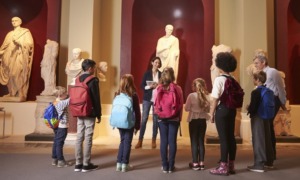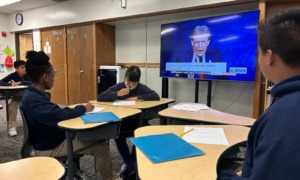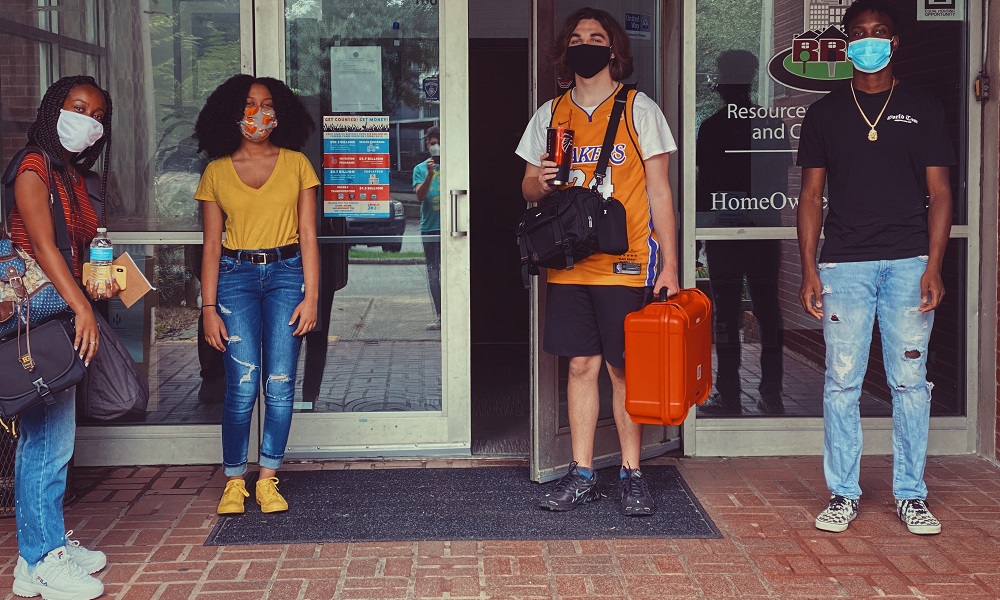
Re:imagine/ATL
Atlanta nonprofit Re:imagine/ATL is the most recent site of a new apprenticeship program providing multimedia producer and digital editor certification to a group of young adults. The organization is setting up apprenticeships through the first federally registered apprenticeship program in the film industry.
Not long after graduating from Lakeside High School in Atlanta, Yabsira Gebrewubet found himself working at a Publix grocery store in the city.
It wasn’t his career goal.
What he really wanted was a job in video-making and editing. He’d become interested after taking video classes in high school.
Then his former high school film and video teacher happened to come into the grocery store. The teacher told him about a program that offered paid on-the-job training and a pathway into the film industry.
Now Gebrewubet is one of 80 applicants in Atlanta for a new federally registered apprenticeship.
“These are students who have a desire to use their creativity and be in this industry, but there’s a disconnect,” said Julie Straw, director of strategy and impact at Re:imagine/ATL, an Atlanta nonprofit that offers the apprenticeships. “They don’t have any way to get a foot in the door and they don’t have a way to gain experience and build a portfolio.”
The pilot program at Re:imagine/ATL will take 14 apprentices for a nine-month program starting at the end of February. They are young people ages 18 to 24 who are underemployed or don’t have a job and are not enrolled in college full time. They have a strong interest in the film industry but have not been able gain access and build a portfolio, Straw said.
[Click Here to Read More About Re:imagine/ATL]
The apprenticeship, which has launched in several places around the country, is the brainchild of Wendy Levy, a filmmaker, national advocate for the arts and executive director of the Alliance for Media Arts + Culture, a network of media arts organizations headquartered in Spokane, Washington.
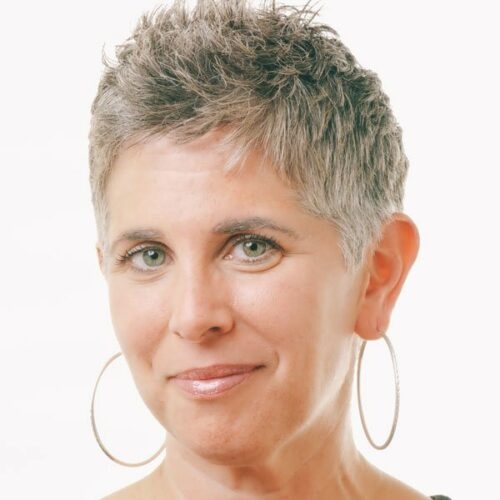
Wendy Levy
She knows how difficult it is to break into the film business. Early in her career, she worked as an unpaid intern during the day and waited tables at night in San Francisco while also pursuing a Master of Fine Arts degree in cinema.
“In the media industry, we’re based on this culture of unpaid internships that are designed for people who have relationships already in the industry and can afford to work for free,” Levy said. “That’s a system that perpetuates inequality and exclusion and does not provide opportunity.”
Unpaid internships don’t necessarily lead to jobs, she said. And power in the industry is concentrated among people who are white and male, she said. Her goal is to open up opportunities to people of color, women and those without money, as well as those who are young, not going to college, LGBTQ or have disabilities.
Breaking into the business
Levy worked with the U.S. Department of Labor to create Arts2Work, the first federally registered apprenticeship in the film industry, in 2018.
Federally registered apprenticeships are paid jobs that include on-the-job training, classroom instruction and mentoring. Upon completion, the apprentice gains industry-recognized credentials.
While many apprenticeships exist in the building trades, none existed for “above the line” jobs in the film industry, such as producing and editing.
The pandemic has slowed down its launch, but currently three employers have hired apprentices and 20 have signed agreements to hire, Levy said.
Mentoring is a crucial part of the program. In addition to a supervisor-mentor, apprentices will have an “industry mentor.” This person goes over their portfolio, introduces them to people and offers an additional network of support. Special care is given to providing supportive industry mentors.
“We want to make sure that that young Black artist has a Black mentor out there in the world, and understands their lived experience, and can support them,” Levy said.
A grant-funded pre-apprenticeship has also been developed.
Wide Angle Youth Media in Baltimore graduated the first apprentice in May: Saki Bowman, a freelance media artist now living in Arizona.
Wide Angle is a media arts education center reaching mostly underserved youth. It offers out-of-school time programs and also produces videos and other media for clients.
In October, Darian Jones started an apprenticeship in digital video editing at Wide Angle.
“I went to school for this, but being a part of a production house teaches me to fine-tune my skills,” Jones said. His work at Wide Angle has included three short films for nonprofit client Higher Learning Group.
“I had to be very detailed in telling them what to shoot and how to shoot it, and how to plan so that I could do my best job with what they provided,” he said.
Jones is also an instructor in Wide Angle’s after-school program for middle school students, and he’s pursuing a degree in digital communication at the University of Baltimore. He’s also a new parent; his girlfriend gave birth to twins in March.
Danielle Clapperton is a multimedia producer apprentice at Wide Angle. Her main focus is animation. She has produced a short file about pediatric asthma for the Abell Foundation, among other projects.
Wide Angle’s third apprentice is Tahir Juba, who is working on two client projects. One is for the Maryland State Arts Council. Before the COVID-19 pandemic, Juba had filmed the arts and entertainment districts in 24 counties in Maryland.
“We’re editing from our archive,” he said. “I’m creating 30-second videos about different topics like arts and education and public arts.”
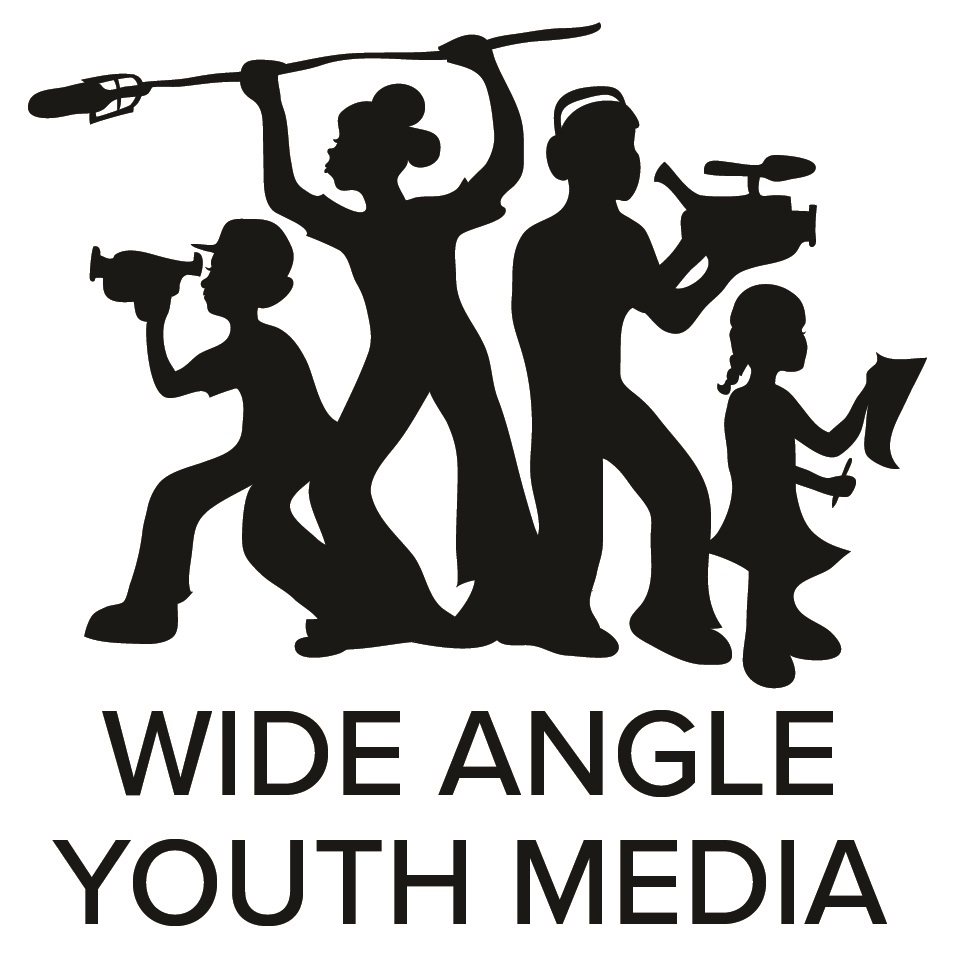
Wide Angle Youth Media
Wide Angle Youth Media in Baltimore, Md., currently has three apprentices. They produce work for clients as they pursue industry certification.
Levy said eight apprentices have been hired to work on the independent film Hummingbirds now in post-production, and one has been hired by Coffee Bluff Pictures in Atlanta. An additional 20 businesses or organizations have signed agreements to participate in the apprenticeship program as mentors and employers, but Levy said they may have to wait until the pandemic is over.
Creating multimedia producers, digital editors and more
Apprentices master a set of competencies that include both technical skills and soft skills. Currently, two certifications are now available: multimedia producer and digital video editor.
Multimedia producers create content for any kind of screen. They may create radio, broadcast television shows or movies. They can work in still photography, 3D and virtual reality, Levy said.
A multimedia producer “is the person who helps take the idea of a story, and produce it on the platforms that are required,“ she said.
Digital video editors work in post-production. They might edit a movie or radio or TV show.
Video production and editing are needed far beyond the film business. Levy noted that almost every business or organization has an online presence. Producers and editors are needed to create online content for them.
Employers from different parts of the digital media industry are planning to offer apprenticeships, Levy said. Epic Games, for example, has provided a grant for apprenticeships in game development and design.
“It’s still multimedia production,” she said. “We want to go specifically into the game industry because there’s lots of jobs there.”
She also hopes to offer a digital archivist apprenticeship. Libraries, universities and organizations with film collection can have large digital archives.
“It’s a very in-demand job right now,” Levy said.
Employers who offer federally registered apprenticeships are eligible for various funding and tax credits.
A 2,000-hour program
An Arts2Work apprenticeship is a 2,000-hour program with an additional 144 hours of classroom instruction. Apprentices learn to use Adobe Premiere Pro, the industry-standard software.
Last summer, the Philadelphia community media center PhillyCAM got a grant to hire seven apprentices. The center teaches, creates and distributes locally produced media content. The apprentices worked with mentors and instructors on various projects, in the process acquiring industry-standard skills.
In Atlanta, Re:imagine/ATL put out a call for applicants for its upcoming program. It reached out to its network of local schools as well as to organizations including Covenant House Georgia, which provides services to homeless young people and CHRIS 180, which provides transitional housing to young adults aging out of foster care.
Once the apprentices are chosen, they will start work Feb. 20, beginning with online training on software including Adobe Premiere, Photoshop and After Effects. From June through August, they’ll work on client projects and gain soft skills. In the fall they will do job shadowing and individual job coaching.
Re:imagine/ATL is partnering with a number of employers, including WarnerMedia and Mailchimp.
“At the end of the nine-month training program, each student will be matched with an employer for work within the creative industry,” said Kimberly Bolton, executive director of Re:imagine/ATL. She hopes the pilot program will expand and lead to a larger number of apprenticeships and a bigger pipeline into digital jobs for a diverse group of young people.
This story has been updated.




